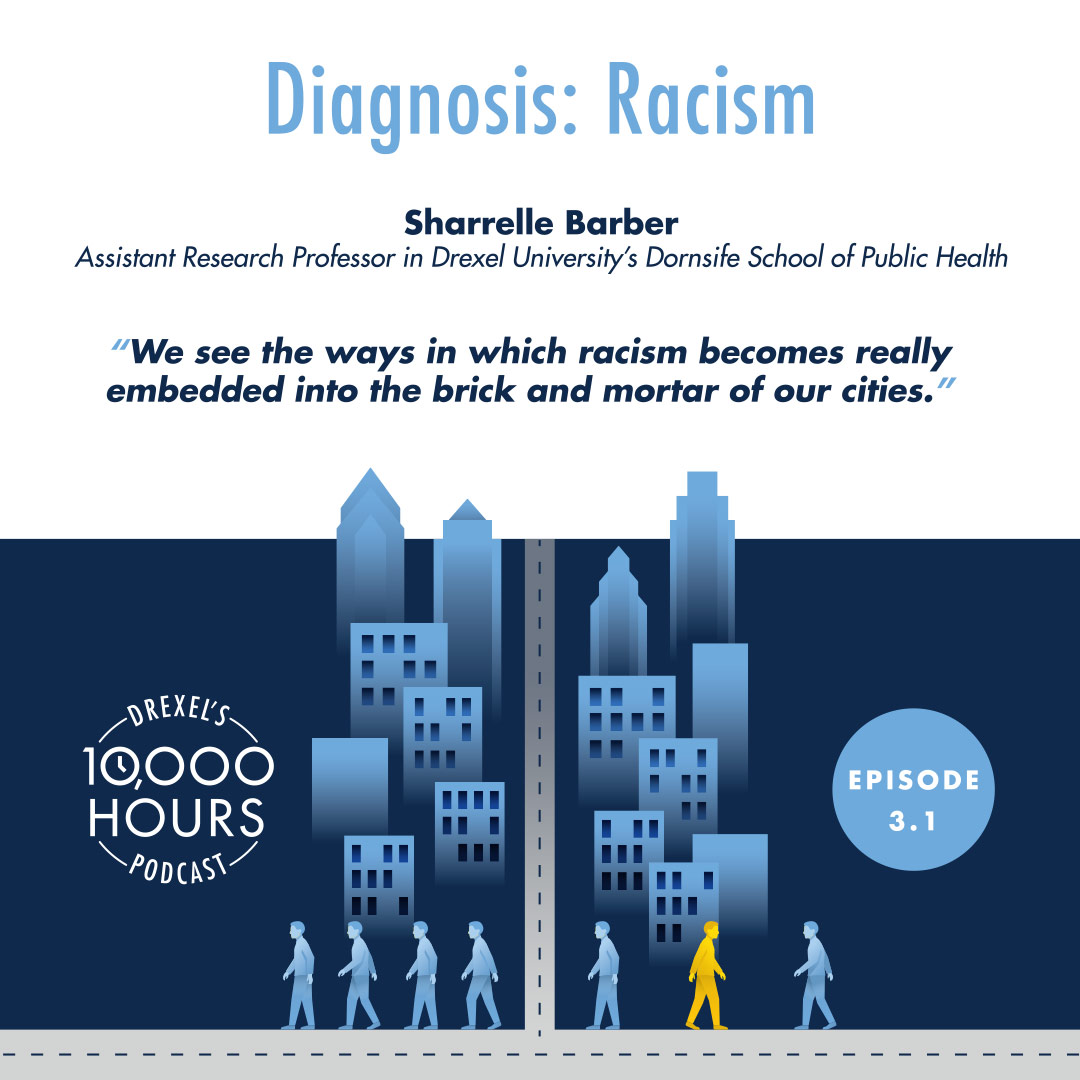
Diagnosis: Racism
How can where you live affect your health? For Black communities, their neighborhoods can literally make them sicker. Sharrelle Barber, an assistant research professor at Drexel, looks at the intersection of place, racism, and health. View transcript.

About Sharrelle Barber
Dr. Barber received a Doctor of Science (ScD) degree in Social Epidemiology from the Harvard T.H. Chan School of Public Health and a Master of Public Health (MPH) in Health Behavior and Health Education from the University of North Carolina, Chapel Hill Gillings School of Global Public Health. Her research focuses on the intersection of “place, race, and health” and examines the role of structural racism (i.e. concentrated economic disadvantage and residential segregation) in shaping health and racial/ethnic health inequalities among Blacks with a particular focus on the Southern United States and Brazil. To that end, she has conducted a series of empirical investigations in the Jackson Heart Study based in Jackson, Mississippi and the Brazilian Longitudinal Study of Adult Health (ELSA-Brasil), a multi-site cohort study based in six urban centers across Brazil. Dr. Barber’s research employs multilevel analysis and spatial techniques and draws heavily from theories that take a socio-ecological approach to understanding health and health inequalities. Ultimately, Dr. Barber hopes her research will inform the development of multi-level, multi-sector policies that will address the underlying structural determinants of health through economic and social policy initiatives.
